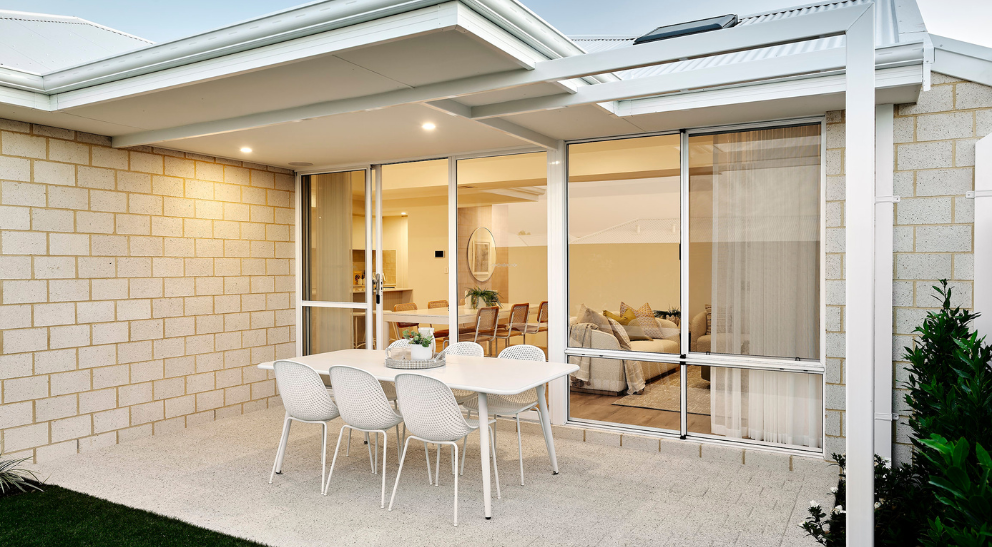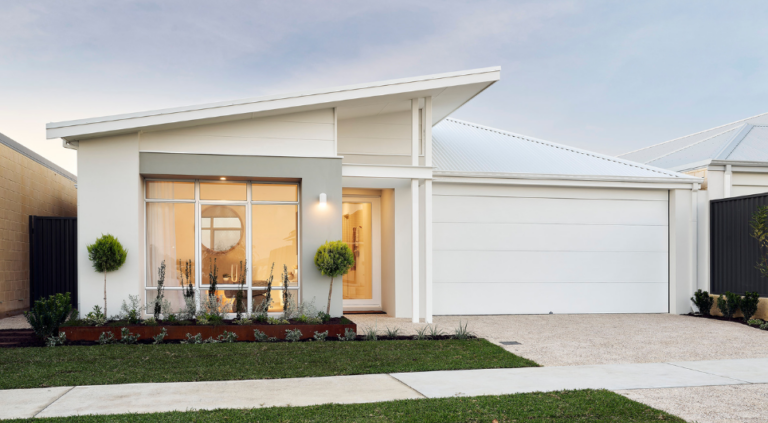When you’re building your first home, there’s a lot to think about, floorplans, colours, fittings…and yes, glass for your windows and doors. You’ll hear a lot about double glazing, Low-E glass, and energy-efficient windows, especially if you’re focused on comfort and long-term savings.
But in Western Australia’s climate, do you really need double glazing? And is it worth the investment? Let’s break it down—so you can make an informed, budget-friendly choice for your new build.
Why does glazing matter?
The type of window glazing you choose impacts much more than just how your home looks.
Glazing affects:
- How much heat enters or escapes your home
- How much outside noise you hear
- How energy efficient your home is
- Your overall comfort (and power bills)
So yes, glass for windows and doors plays a huge role in how liveable and cost-efficient your home will be.
Double Glazing vs. Low-E Glass: What’s the difference?
Double glazing is often seen as the “gold standard” for energy efficiency. It is made up of two panes of glass with a sealed air or argon gap in between, It helps reduce heat transfer and noise, and is often seen as the gold standard for thermal performance.
Low-E glass (short for low emissivity), has a thin invisible metal coating that reflects heat back inside during winter and keeps it out during summer.
It keeps warmth inside during winter and blocks it out during summer—boosting energy efficiency.
👉 Here’s the good news: You can often get similar thermal performance to double glazing using Low-E glass—but at a fraction of the cost.
What should first home buyers consider when choosing glass for their windows?
1. Energy Efficiency
If you’re building in WA, you might be surprised to learn that double glazing isn’t usually required to meet energy rating standards.
Low-E glass performs 2.5x better than standard glass in summer, and 2x better in winter—which is comparable to average double glazing setups.
💡 At Easystart, we often recommend Low-E glass as a cost-effective way to improve energy performance without blowing your budget.
2. Noise Reduction
If you’re near a main road or have noisy neighbours, soundproof windows become important.
While double glazing reduces noise, laminated glass can be even more effective—and more affordable. It can reduce noise by up to 30% compared to standard glass.
Plus, laminated glass adds a bonus layer of security, because it stays together if broken.
3. Cost vs. Value
One of the biggest myths about double glazing is that it’ll save you heaps on power bills. While it does help, the upfront cost is much higher—and in many cases, it’ll take years (if not decades) to break even.
Low-E or laminated glass can give you similar results at a fraction of the price, making it a smarter investment for most first-home buyers.
💡 Did you know? At Easystart Homes, we partner with Jason Windows – WA’s leading supplier of residential aluminium windows and doors. They’ve been trusted in the industry for over 60 years and are known for their quality, durability, and innovation. So when you build with us, you’re not just getting beautiful design, you’re getting products that are built to last.
So… what’s the best glazing option?
If you’re after comfort, energy efficiency, and a solid return on your spend, Low-E glass is often the sweet spot. You’ll keep your home cooler in summer, warmer in winter, and reduce glare—without needing to splurge on double glazing.
And if noise is a concern? Consider adding laminated Low-E glass to your front-facing windows or any high-noise zones. It’s a great way to balance performance and affordability.
Questions to ask your builder:
- Is Low-E glass included in the base price?
- Can I add laminated or Low-E upgrades to key rooms?
- How do these choices impact my energy rating?
At Easystart, we’re upfront about what’s included and can walk you through all the glass options available, so you’re not left guessing (or overspending).
Building smart starts with the details
When it comes to building your first home, every detail matters—and your glazing choices play a big role in how your house feels to live in. With the right advice, you don’t have to go over budget to get a home that’s comfortable, efficient, and future-ready.
Want to learn more about building with Easystart? Get in touch today—we’re here to make it easy.




